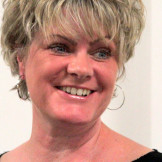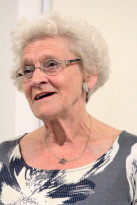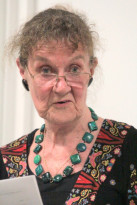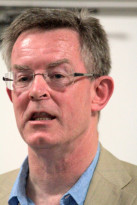Why the beautiful South has a place in my heart

I’ll confess it straight away – I have a soft spot for South, which was the first poetry magazine to accept a poem of mine. They hadn’t a clue that I hadn’t been published anywhere before – it was the poem that mattered. The launch for that particular magazine was in Chichester, back in 2008. South publishes twice a year; eight years on, it was launching South 53 in Reading, home of many fine poets, on Thursday night.
It’s a magazine with a number of features. Each issue’s contents are chosen by a different pair of guest selectors, who have no idea of the identities of the poets they pick. It is adorned with admirable mono cover pictures – the current cover shows Reading’s Maiwand Lion war memorial - and has a generally stylish appearance; and it survives on subscriptions and sales, and has no Arts Council grant.
That last point was emphasised at the end of the evening by Patrick Osada, a long-time member of South’s management team, who was enjoying a night in the spotlight as the magazine’s profiled poet. Even so, he was allotted no longer to read than the five minutes that the other 19 poets there on the night to read were also given.

Her fellow selector, Wendy Klein, who has published three collections, conceded that “subjectivity can cloud judgment”, making it “vital to have a co-selector”. She added: “I am a sucker for poems with a strong emotional impact, and poems that are dominated by form or shape have to work much harder to be chosen by me.”


One of the most moving poems on Thursday night was ‘Viral’ by Andrew Geary, pictured below, from Enfield in north London, about photographs that attract worldwide attention. The poem narrows its focus to the photograph of a small boy on a beach that tore at people’s hearts: “The sea, / as if ashamed of what it has done, / has nudged his body back onshore / and is licking his black hair.”

The evening was MCd with panache and wicked wit by guest compere AF Harrold, who is normally found presiding at the Poets’ Cafe in South Street, Reading – that is, when he is not elsewhere performing his own poetry. He is also a successful children’s writer. Introducing one poet whose biog said he had been published in over 40 magazines, anthologies and webzines, Harrold demanded to know: “Where’s his loyalty? Some people are quite happy just to be published in South!”
And with its convivial launches held in different towns and cities that engender the feeling of a poetry community, you can see how that might be. South has a print run of 300, with its subscribers numbering around 120. If you want to submit up to three poems to the next edition of South, the deadline is 31 May.
Background: South notches up half-century




